The team of well-established volunteers in the Collection Care department has successfully completed a second large-scale project on the photographic collection of The National Archives.
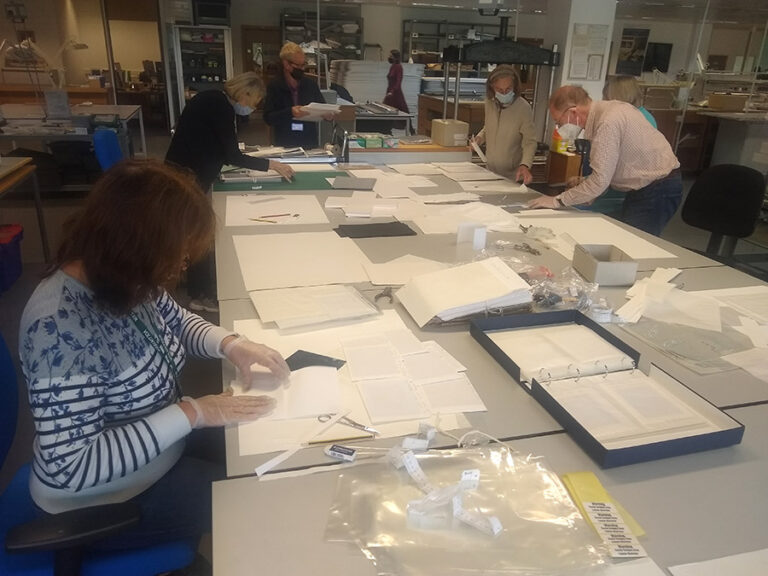
The project to rehouse photographic plastic negatives and films started back in October 2019, and after a pause of almost a year and a half due to the COVID-19 pandemic, it was completed in October 2021. The same team of enthusiastic and dedicated volunteers has previously completed a survey on more than 6,200 plastic films and negatives, with the aim to understand the range of these materials held in the collection, their location and, most importantly, to record their condition. You can read more about this significant project in our blog, ‘What do with degraded film‘.
The rehousing project took a step further, and focused on improving the housing materials that were identified by the volunteers during the previous survey as being of poor quality or likely to affect the future condition of the negatives and films. The knowledge they acquired during that survey was key to understanding better the rehousing needs of the affected collection items. Conservators overseeing the project set up a rehousing procedure for these items, and the volunteers received additional training in order to become familiar with the tools and the techniques for adjusting the housing.
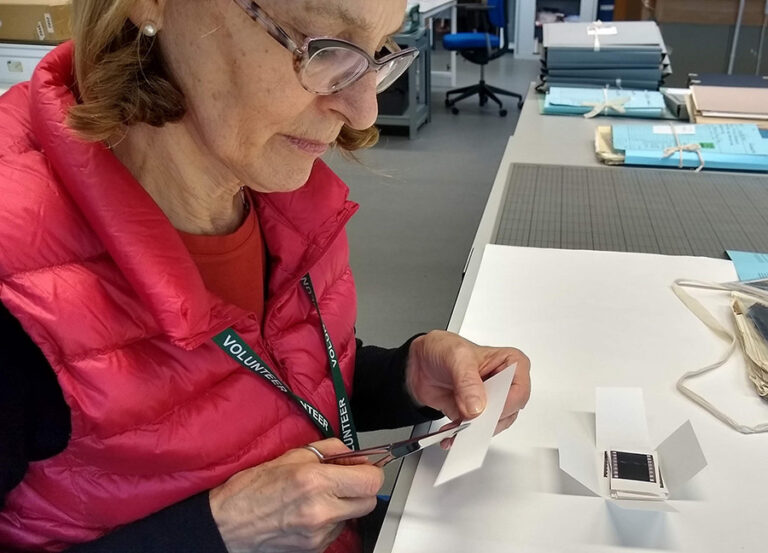
The process involved the volunteers inserting negatives and films into photographic archival-quality pockets and folders. These specialist folders ensure the document’s long-term preservation, and promotes safer handling and better access to the collection. Keeping in mind always both the preservation of the collection items, and their integrity within the files, the volunteers demonstrated critical thinking and developed new practical skills which helped in finding innovative rehousing solutions. The team rehoused more than 5,000 items.
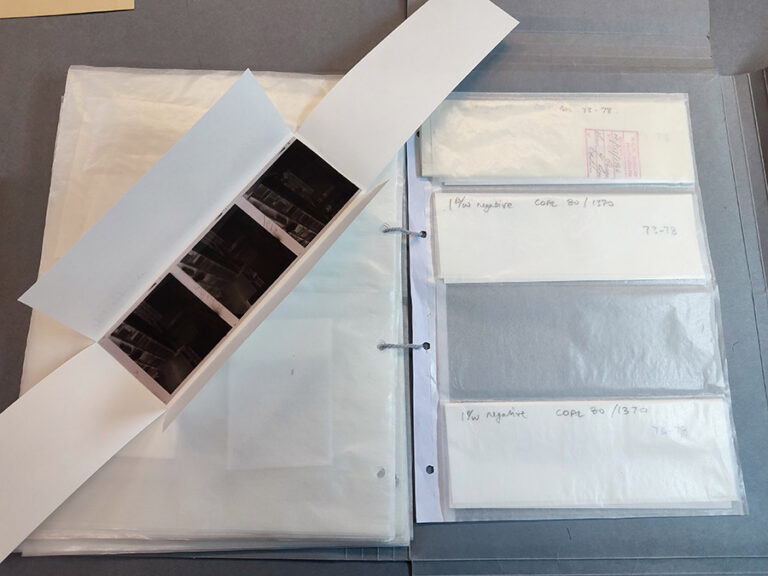
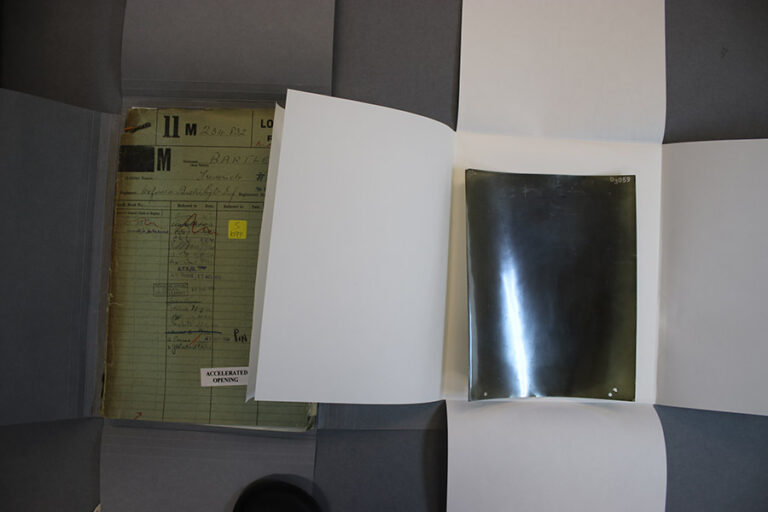
The rehousing project has been extremely impactful and has created opportunities for additional projects that support the preservation of photographic materials in the collection. During the survey, as well as during the rehousing, the volunteers found several plastic negatives and X-rays in poor condition. These have now been recorded in detail and moved to special sub-zero storage facilities. Freezing conditions are the only solution to prevent further deterioration of the unstable plastic support in these collection items. A relocation and storage procedure has now been established when items in such condition are identified.
A large number of glass negatives were also found. Glass negatives are fragile and some of the negatives found suffered from breakage. To combat this issue a research project was carried out in order to create a methodology for stabilising and repairing the cracks, making the negatives once again accessible and safe to handle. A special workshop is now planned to share this process with other conservation colleagues and the wider profession.
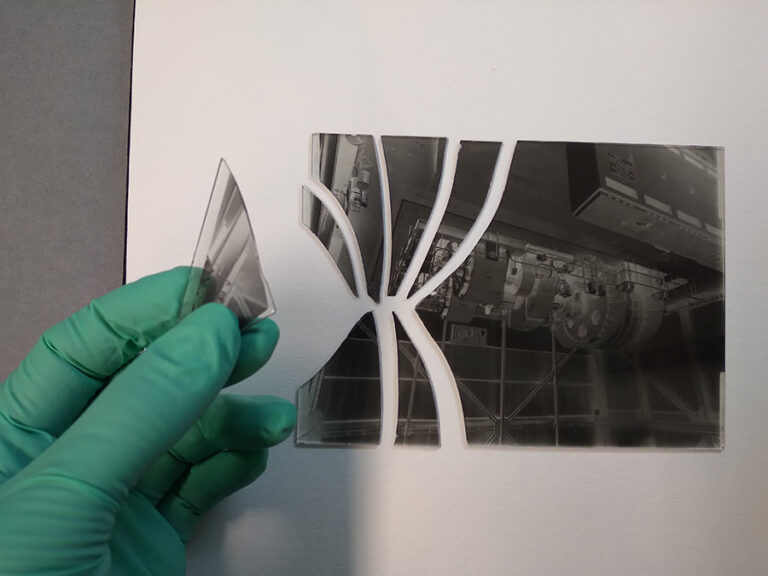
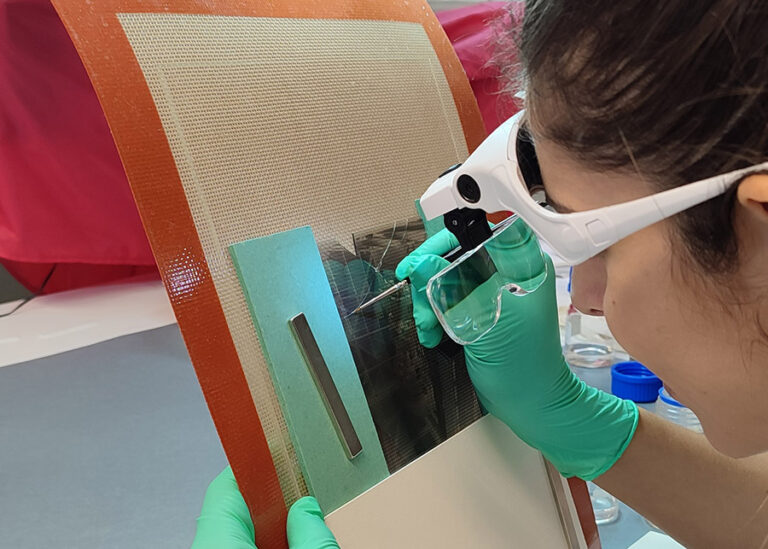
This has been an exciting project to be a part of and the ceaseless energy of the team of volunteers, as well as its love for the collection at The National Archives, has driven discussions about continuing with further projects for the care of photographic materials. A new project is now being planned.
I would like to express my thanks to all the volunteers, including Pauline Bittles, Anne Ramon, Jane Pearey, Dorota Boisot, David Jones, Neil Davies, Vivian Brown, and the late William Barney, who sadly passed away on 6 February 2020. Their enthusiasm, commitment and spirited approach helped immensely in the successful completion of the project.
